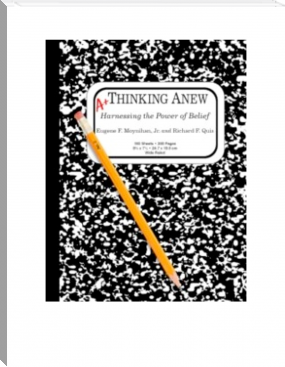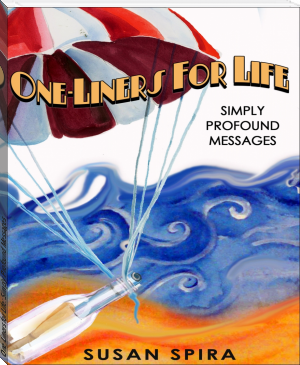mindset of a hero by Dr. Olusola Coker (best free ebook reader .txt) 📕

Read free book «mindset of a hero by Dr. Olusola Coker (best free ebook reader .txt) 📕» - read online or download for free at americanlibrarybooks.com
- Author: Dr. Olusola Coker
Read book online «mindset of a hero by Dr. Olusola Coker (best free ebook reader .txt) 📕». Author - Dr. Olusola Coker
Volunteering to help others who are in need, whether it be for a person, a group, or a community.
Taking actions with no expectation of remuneration or gain from others
Recognize and embrace the potential risk or sacrifice that heroic deeds may entail.
Heroism's 12 Characteristics
The primary elements that define heroism are also a source of disagreement among researchers. According to a study published in the Journal of Personality and Social Psychology in 2015, heroes have 12 core characteristics, which include:
Conviction of Courage
Determination Courage
Honesty that is beneficial
Inspirational
Protective of moral integrity
Self-sacrifice
Selflessness
Strength
Although the psychology of heroism is not completely understood, many experts feel that people can learn to be heroes. The following are only a handful of the primary traits attributed to heroes by researchers.
Concern for other people's well-being
Empathy and compassion for others, according to psychologists, are essential factors that contribute to heroic action.
People that jump in to aid others in the midst of danger and difficulty do it out of genuine concern for their safety and well-being.
People with heroic tendencies also have a far higher level of empathy, according to a 2009 study.
People who perform acts of heroism are concerned and caring about those around them, and they are able to empathize with those who are in need of assistance.
Understanding Other People's Points of View Has Its Advantages
Heroes, according to researchers, aren't simply compassionate and kind; they also have an uncanny ability to perceive things from the perspective of others.
They can, in a sense, "walk a mile in another man's shoes."
When they come into a situation when someone is in need, they can immediately see themselves in that circumstance and see what needs to be done to assist them.
Heroes Possess Valuable Skills and Attributes
Clearly, having the training or physical ability to deal with a crisis might influence whether or not someone becomes a hero.
People are less willing to help or choose less direct ways to intervene in situations where would-be rescuers lack the know-how or overwhelming physical strength to make a difference. In many circumstances, this is the ideal strategy; after all, people rushing into a dangerous situation without thinking can make rescue workers' jobs considerably more difficult.
People who are skilled and capable, such as those who have received first-aid training and experience, are better prepared and capable of stepping up when their talents are required.
A strong moral compass is possessed by heroes.
Heroes, according to heroism scholars Zimbardo and Franco, have two important characteristics that distinguish them from non-heroes: they live by their principles and are willing to lose their lives to protect those ideals.
Their personal convictions and beliefs give them the confidence and determination to face risk and even danger in order to uphold their principles.
Heroes are capable and self-assured.
Rushing in where others are afraid to tread demands both talent and self-confidence. According to studies, persons who undertake heroic deeds have a strong belief in themselves and their talents.
When confronted with a crisis, they have a deep belief that they are capable of handling the situation and succeeding against the odds. Part of this self-assurance may derive from above-average coping skills and stress management abilities.
Heroes Aren't Afraid to Facing Fear Heroes Aren't Afraid to Facing Fear
Someone who goes into a burning building to save another person is not only courageous; he or she also has the ability to overcome fear. Researchers believe that heroic people are naturally positive thinkers, which helps them see beyond the immediate danger of a scenario and see a more positive result.
In many circumstances, these people may also have a higher risk tolerance. In the face of danger, many caring and gentle people may withdraw. Those who take the initiative are more inclined to take more risks in various facets of their lives.
Even after many setbacks, heroes continue to work for their ambitions. Another attribute that heroes have in common is their perseverance.
Researchers discovered in a 2010 study that
Heroes were more likely to make the best of bad situations.
When confronted with a potentially fatal illness, people with heroic inclinations may focus on the positive aspects of the circumstance, such as a greater respect for life or a closer bond with loved ones.
"Many of us will be confronted with the decision to act courageously at some point in our lives. By conceiving of heroism as a universal feature of human nature, rather than a rare feature of the few "heroic elect," heroism becomes something that appears within everyone's range of possibilities, perhaps inspiring more of us to answer that call "Zeno Franco and Philip Zimbardo, heroism researchers, write about it. 2 Verywell's Remarks
Researchers have discovered that heroes are similar to the average person in many aspects. However, there are a variety of talents you may develop to help you improve your hero qualities.
You may improve your empathy, competence and skills, and perseverance in the face of adversity by working on them over time. You will be better able to serve others and come through in times of need if you do so.
People can be more productive when they consciously build a mindset that will increase their response to a specific situation, according to many disciplines ranging from psychology to theology. When the whistle blows, you shift into a high-performance mode. When it comes to a halt, you must adopt a grateful attitude. Being deliberate about what you want to experience puts you in the greatest possible position to do so.
The three mindsets are as follows:
Purpose attitude - With this mindset, you must concentrate on what truly motivates you. It encourages you to find your energizing values, motives, purposes, and needs, and to let them influence your decisions. The purpose attitude protects you against the constant temptation to get caught up in the clamor of other people's goals and ideals.
Connection attitude - This mindset demands you to treat yourself as though you love and respect yourself. It focuses on increasing your sense of unconditional self-worth and acceptance of yourself. In a media-saturated environment, the connection attitude safeguards you from the constant forms of comparison that can strangle you.
Performance attitude - This mindset requires you to pay attention to the signs that allow you to be your best self. It enables you to achieve high levels of performance while focusing on procedures rather than outcomes.
Each of these mindsets offers a unique perspective on today's environment that enables a healthy but personalized interaction with it.
I'd want to propose a different attitude for our time: the heroic mindset.
The heroic mindset is a reaction to the current era's stress and complexity. It urges you to reframe the stress, complexity, and challenge as opportunities for personal development. This approach encourages you to face your fears, learn on your feet, ask for support, and share what you've learned.
Joseph Campbell's hero's journey is the best example of the heroic mindset (2018). This is the story of a person who leaves home reluctantly in pursuit of riches, is aided along the way, faces difficulties and tribulations, triumphs, dies, is reincarnated, and comes home with a prize. One of our oldest systems for making meaning is the hero's journey. It lies beneath all mythology, fantasy stories, and action movies (Campbell, 2018).
I've found that telling leaders that they're writing their own hero tale is helpful. My version of the hero's journey, recast in the context of professional learning and sometimes mentoring, goes like this:
You are not as weak or disoriented as you believe. You've been summoned to embark on an adventure, to break free from the mundane and do something extraordinary. You have the potential to improve. Solve a major issue. Others should be served. Make the world a better place. Yes, you are currently terrified. However, you will have access to unique people and resources who will assist you on your quest. Do not be hesitant. Take a step forward. You will gain knowledge from your numerous struggles. You will gain skills that will allow you to reach your full potential. You will master yourself and earn your community's esteem. It will feel fantastic to be at the top of your game, but you must go back to the beginning and share what you've learned with others.
Supporting leaders in recasting their problems as heroic acts is a powerful antidote to feelings of helplessness and anxiety. If worry comes from not knowing where the dragon is, heroism comes from consciously approaching it with a sword and a nice potion. If you're feeling stuck or tired, relocating yourself on the hero's journey and fully committing to your next step could be a viable option.
Mindsets of Growth and Benefit
Mindsets of Growth and Benefit
The core of the growth mentality is self-improvement attained via self-belief and purposeful effort. However, as you educate your pupils the necessity of integrating a development mindset with the notion known as the benefit mentality, this type of personal advancement is merely the first step.
Benefit-Mindset-definitions
"There is a global movement taking place in education, business, and sustainability," says Ash Buchanan. A growing group of people who believe in the same thing. Rather than being motivated by personal gain, this rising community of people is discovering the true worth of being of value—to ourselves, others, nature, and the future." A growth mentality's natural extension is the benefit mindset.
Growth Mindset and Benefit Mindset's Heroic Qualities
Leadership's Social Contribution by True Leaders
People and earth stewardship: lead by example, serve as a role model, conserve and safeguard the natural environment, and treat animals with compassion.
Volunteering, assisting others, and practicing generosity of time and resources are all examples of service to others.
Practice mindfulness, self-discipline, and self-reflection to increase self-awareness.
Earn and maintain a positive reputation; demonstrate integrity, reliability, and accountability; honor commitments; and keep promises.
Nonviolence, respect, patience, calm, and cooperation are personified by synergy. construct a bridge; play fairly
Solutions include apologizing, forgiving, making amends, finding links and common ground, thinking win-win, and seeking justice and equity.
Love's Emotional Advantage (empathy-heads)
Empathy means putting yourself in the shoes of others and demonstrating kindness, consideration, concern, and understanding.
Inclusion entails embracing tolerance, celebrating diversity, honoring individuality, extending a warm welcome, and demonstrating acceptance, friendliness, and courtesy.
Encouragement: offer words of encouragement, cheer, and reassurance. be soothing and reassuring
Communication, allowing people in, and actively listening are all examples of interaction.
Openness: be sincere and honest, and communicate your emotions.
Affection entails extending friendship, demonstrating loyalty, faithfulness, commitment, trust, and acting with love and tenderness.
Pay attention: practice empathy, be aware of others' needs, and make oneself available.
Optimism means looking for the positive, holding on to hope, and seeing the bright side of things.
Assurance: exude confidence and humility, speak up for yourself, and advocate for yourself.
Disney's Soulful Legacy of Laughter
Follow your heart and pursue your dreams; convey your excitement and ambition; exercise authenticity; share your dreams, desires, and delights.
Play: value experiences over stuff, be awestruck, embrace adventure, commune with nature, explore, experiment, inspire, and laugh a lot.
Make art, create beauty, explore creativity, and flaunt your personal style with panache.
Pluck: try new things, trust your instincts, show bravery and gallantry, live your principles, go against the grain, and fight for what you believe in.
Purpose: find meaning, respect the past, and live in the present.
Look under the surface, slow down, relish the moment, accept mystery and the unknown, and expose interconnectivity with profundity.
Praise: be grateful and appreciative of others.
Wisdom is the ability to learn from one's mistakes and to keep growing and perfecting





Comments (0)